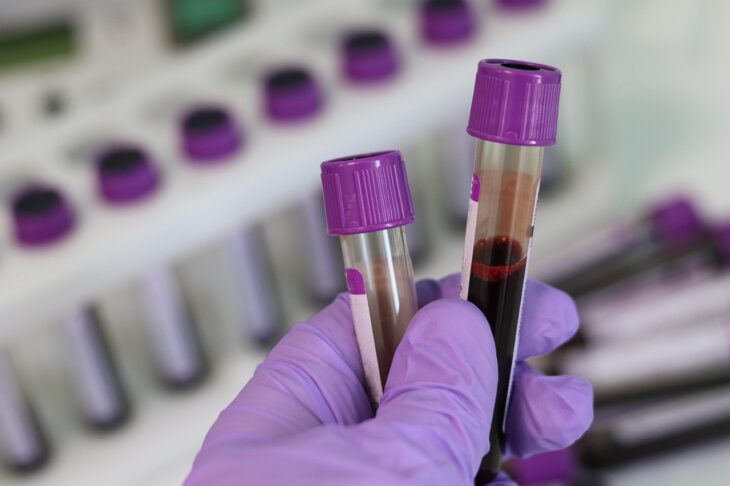
Infertility is a common issue for couples and individuals in the US. In fact, according to the Office on Women’s Health roughly 6.1 million women in the US deal with infertility (about 10%) during their reproductive years. Doctors identify infertility as an inability to conceive after 12 months or more of unprotected intercourse. For women over 35, doctors consider infertility after six months of trying without success.
So, what can you do about it if you think you are infertile? The first step is scheduling a fertility evaluation. This includes a thorough exam, health history and family health background and tests that help in determining the cause of your inability to conceive. Age has a huge impact on your fertility, so it’s important to schedule an evaluation as soon as you suspect something might be amiss.
Factors in Female Fertility
Before we get to the testing let’s take a look at some of the causes of female infertility. Your ability to conceive depends on a variety of functions and factors. They are:
- Ovulation: It is necessary that you release an egg each month as normal in order to conceive.
- Egg Reserve: Females have all of the eggs they will ever have when they are born. Egg reserve decreases with age and directly impacts your ability to conceive.
- Egg Quality: Your eggs must be healthy and viable.
- Hormonal Balance: You must have balanced hormones in order to ensure ovulation and reproductive function.
- Reproductive Anatomy: Your pelvic region, cervix, fallopian tubes, and uterus must be normal and functioning properly in order to support a pregnancy.
- Underlying illness and Medication: There are some illnesses and chronic conditions that undermine your efforts to conceive. Some medications used to treat illnesses also interfere with conception.
- Weight: Being overweight can cause hormonal imbalances that interfere with ovulation and conception. A higher than normal weight may relate to polycystic ovarian syndrome.
- Lifestyle: Sometimes your lifestyle prevents conception, especially if exposure to toxic chemicals or heavy metals is part of your day to day. Recreational drug use, extremely poor diet, smoking, and alcohol consumption may interfere with normal reproductive function.
Common Fertility Testing
Before your doctor determines a treatment plan, they need a clear idea of the cause of your infertility. Here are the most common tests to diagnose infertility in women.
10 Tests to Diagnose Infertility in Women:
There are a variety of hormones necessary for successful conception and pregnancy. Your doctor uses a blood test, often timed with your menstrual cycle, in order to assess your hormonal balance. Additional tests may include a variety of imaging tests and a surgical procedure.
- Follicle stimulating hormone or FSH stimulates egg development. This test occurs around the 2nd or 3rd day after the onset of your period. FSH measurements give your doctor an idea of how well your ovaries work and how many eggs are in your reserve.
- Estradiol level measurements occur at the same time as FSH and also indicate ovarian reserve. Along with progesterone, estradiol prepares the lining of your uterus for the fertilized egg. Normal levels indicate pregnancy is possible and high levels indicate a low ovarian reserve.
- Progesterone maintains the lining of the uterus and equips it to receive the fertilized egg, so it implants and develops. The optimum time for progesterone measurements is after ovulation, approximately 20 days after the first day of your period. If ovulation occurs, progesterone goes up.
- Prolactin is the hormone that stimulates milk production in females. Prolactin, in small amounts, circulates through the blood of non-nursing, non-pregnant women. The pituitary gland makes prolactin and high levels may indicate ovulation issues or cause irregular periods. Certain surgical procedures as well as a thyroid condition or pituitary tumor may cause elevated prolactin. Your doctor may order additional testing.
- Fasting Blood Sugar test shows the doctor any elevations in your blood sugar which could indicate the onset of diabetes or PCOS.
- Rubella testing indicates whether or not you’re immune to German Measles (rubella). Immunity is important as rubella exposure in non-immune pregnant people has a high chance of causing birth defects or fetal death. If you are not immune there is a vaccine to prevent rubella.
- Pelvic ultrasounds are the primary imaging test. An ultrasound shows your doctor a clear picture of your reproductive anatomy. For a transvaginal ultrasound, the technician inserts a special ultrasound tool into your vagina for a closer look at egg development as well as your reproductive organs.
- Hysterosalpingogram helps your doctor identify any abnormalities in the shape of your uterus and any blockages in your fallopian tubes. The technician injects a dye into your cervix and tracks the dye via x-ray. This test takes place after your period stops, but before ovulation.
- Hysteroscopy is the name of the procedure that uses a scope inserted into your vagina that looks for scar tissue, polyps, fibroids and any other abnormalities in your uterus or fallopian tubes.
- Laparoscopy is a surgical procedure, so it’s much more invasive. The doctor inserts a small lighted scope into your pelvic area through a small incision in your abdomen. This gives your doctor a far more exact image of your reproductive organs. Your doctor looks for evidence of endometriosis, ovarian cysts and blockages and scar tissue.
Schedule an Evaluation
Although these tests sound like a lot, they do help your doctor get a clear picture and enables them to diagnose your infertility. For more on how you can schedule an evaluation contact LA IVF today.










